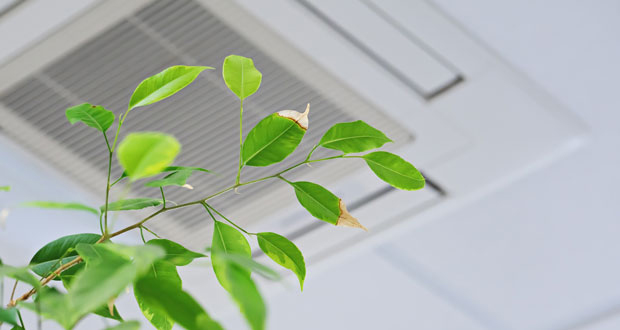Today (16 June) marks Clean Air Day, the UK’s largest air pollution campaign, bringing together communities, businesses, schools and the health sector.
The WHO blames exposure to pollution for seven million premature deaths a year worldwide and says there is “clear evidence” that air pollution harms human health “at even lower concentrations than previously understood”. It considers air pollution to be as big a threat to human health and wellbeing as climate change.
The important role played by mechanical ventilation systems in making buildings safer and healthier will be a key theme of this year’s National Clean Air Day, with Covid-19 having exposed how easily diseases can spread in poorly ventilated indoor spaces, which prompted a leading scientist to describe ventilation as “the most overlooked building safety issue”.
The government’s Chief Medical Adviser, Professor Chris Whitty, added that investment in building ventilation should be a top priority for businesses to help them recover from the pandemic, keep their employees safe, and prepare for future health emergencies.
“We have realised the extraordinary importance of improving the ventilation of workplaces, not just for Covid but also for many other respiratory infections,” he said. “If we invest in that now, we’ll both help the aftermath of Covid, but also cut down on things like flu outbreaks.”
The Building Engineering Services Association (BESA), the industry body representing ventilation companies and indoor air quality (IAQ) specialists, is using Clean Air Day to explain how increased awareness of the problem in homes, schools, offices and public spaces can be turned into practical measures.
It will host a special webinar featuring input from experts around the country and the national press to demonstrate how buildings can be turned into ‘safe havens’ that protect people from external pollution and contaminated indoor air.
It will build on recommendations made by the Scientific Advisory Group for Emergencies (SAGE) that helped the government develop strategies to deal with the pandemic and its current measures for ‘living with Covid’.
Professor Cath Noakes OBE, who co-chaired SAGE’s Environment and Modelling Group, said the number of people who caught Covid because of poor ventilation “should make everyone sit up and take notice”.
“Covid-19 has been shown to be transmitted through the air. Even if only 10 per cent of all Covid-19 related deaths could be directly attributed to the failure to adequately ventilate indoor spaces, that would be more than 15,000 since the start of the pandemic – a shocking statistic,” said Professor Noakes, who is Professor of Environmental Engineering for Buildings at the University of Leeds.
She added that the most significant finding made by her group was that far too many UK buildings were simply under-ventilated despite clear guidelines and regulatory requirements.
The BESA webinar will feature methods for measuring and monitoring IAQ along with ventilation, air cleaning and filtration techniques to reduce the concentration of contaminants and airborne viruses.
It will be working with ventilation company Nuaire and IAQ monitoring specialist Airthings to capture ‘live’ data illustrating the scale of the problem around the country with reports from national print and broadcast media.
Nathan Wood, Chair of BESA’s Health & Wellbeing in Buildings Group said: “The big problem is that most buildings do not have any active ventilation management. At the top end of the market, the issue is well understood, and expertise is on hand to put best practice into effect, but we must urgently help the thousands of buildings that have no ventilation strategy and lack the information and expertise to protect occupants now and prepare for the next health emergency.”
BESA’s Head of Technical Graeme Fox said that, while the pandemic had raised the profile of the role IAQ plays in human health and wellbeing, there was still “a lack of understanding about how that can be translated into practical measures like improving building ventilation and filtration”.
As a result, the Association has produced three pieces of free guidance focusing on practical measures to tackle the specific challenge of reducing airborne contaminants inside buildings.
This guidance has recently been adopted by British trade unions, scientists and groups representing Covid sufferers to help shape an ‘Employer Pledge’ designed to ensure companies meet all their legal obligations to make employees feel safe at work in the wake of the pandemic.
This webinar will look at how outsourcing is a cost-effective and highly relevant strategy to not only counter the race for talent, but to build greater agility, expertise, infrastructure and resource into business. In particular it will acknowledge the operational challenges facing FMs as the UK starts its return to the workplace.
To register for the webinar click here.





